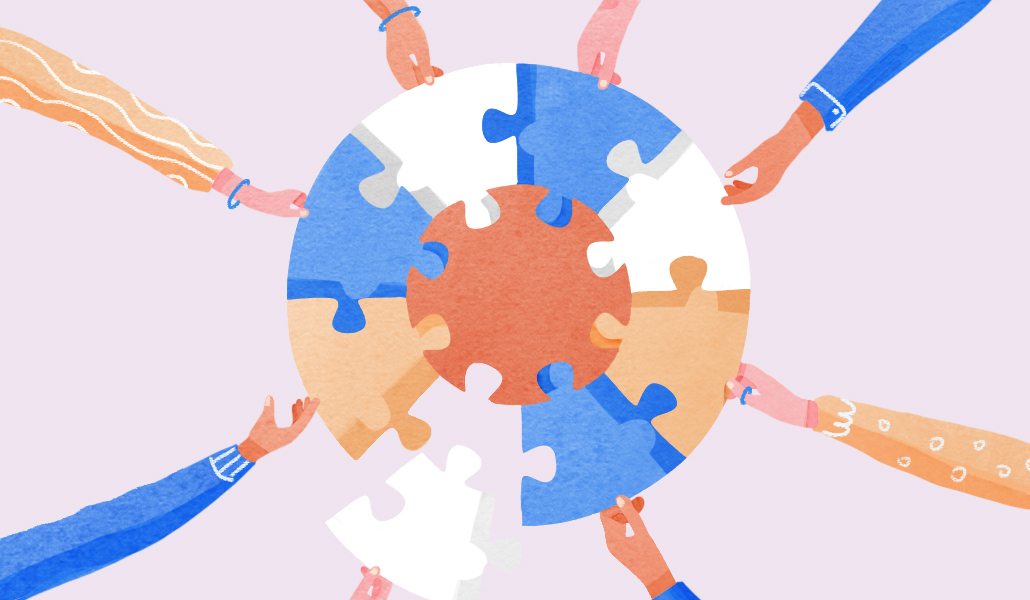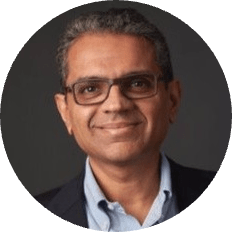Nestlé, P&G, and Walmart reveal their 2024 talent retention secrets

How do you prioritize employee development and internal growth at a company against the backdrop of an uncertain economy and people switching jobs more frequently than ever before?
We asked some of the biggest retail and consumer goods conglomerates to tell us how they’re prioritizing talent retention in 2024, and in doing so leaning into the so-called “Big Stay” trend as the “Great Resignation” recedes. The response: companies like Nestlé, Walmart and Procter & Gamble have doubled down on their efforts around employee benefits, stock options, paid time off, while also ensuring offices are welcoming and that each employee has access to internal generative AI tools to help boost their productivity.
In an era when the average time a person stays in a job is at an all-time low, P&G has found a smart way to buck the trend. The consumer goods giant, home to brands like Gillette, Pampers, and Pantene and employer of 107,000 people globally, gives new hires a rigorously structured career development roadmap straight off the bat. That means that an average new hire works five different roles within their first 10 years at the company, providing them the opportunity to move across brands, businesses and geographies to tackle new challenges.
For example, one employee who has been there for 12 years started as a senior brand manager in homecare (Australia) and eventually ended up as the regional business unit communications director — fem care, North America (Cincinnati), according to a company spokesperson.
Managers, in particular, are promotion-ready within 2.5 years. The result: More than 99% of senior leaders are produced within the company.
What happens when there is a clear growth plan for employees
At P&G, employees have larger career conversations with their managers that happen at least twice a year, that discuss the employee’s impact in their current roles, what skills they need to develop, and what other roles might be a good fit for their skills, experience and interest. To get promoted at P&G, people need to demonstrate their impact and competency across a range of skills, but managers are there to help with that.
“Leadership development has always been a point of difference for us,” said Bala Purushothaman, chief HR officer at P&G. “Employees have the opportunity to have big jobs with broad responsibilities from day one. And because of our global footprint and portfolio of superior brands, our team members can have several careers within a career. This gives them the opportunity to learn and grow within the company, so they’re less likely to move to another company for a different or better experience.”
Walmart is also laser-focused on people development.
“We’re focused on how we develop our talent — we want people to build meaningful careers that position them for success today and in the future,” said Maren Waggoner, Walmart’s senior vp for global tech and corporate functions people. “We’re looking for ways to make sure all learning counts, with a focus on skills so associates have a broad pathway to building a career that reflects their unique talents and interests.”
In January, Walmart announced increased wages for store managers. The average salary will go up from $117,000 to $128,000 annually.
Meanwhile, Nestlé has an internal talent marketplace platform that connects project managers with talent from all areas of the business and gives employees an easy way to form networking relationships and find new opportunities in other parts of the business. This also helps to connect its global workforce of 275,000 people across various geographies and ensures the teams of individual brands (which include Gerber, Perrier, and Purina) don’t work in silos, stressed David Tredo, vp, strategic initiatives & integrated talent, Nestlé North America.
“It helps us engage our employees’ interests and development goals, while also driving growth and engagement for the business,” said Tredo.
The company also has a nomination-based development process, where employees can gain development opportunities through their function’s talent review process.
“Our employees have the opportunity to participate in programming and events designed to support their growth and success,” said Tredo. “We also offer coaching programs for new and mid-level people leaders to help support employees growing into higher-level leadership and management roles.”
Financial, physical and mental well-being benefits
When Walmart, the world’s largest employer with over 2 million associates, announced its 3-to-1 stock split in January, people were excited.
“I was fortunate to be in the room with all our store managers and Walmart U.S. leaders when [CEO] Doug [McMillon] made the announcement, and it was absolutely electric,” said Waggoner. “This is a big deal for our associates, and it’s all rooted in our culture.”
It’s a win for all its employees, as more and more understand how much a stake in the company really means. More than 400,000 associates participate in Walmart’s Associate Stock Purchase Plan, which allows associates to buy stock through payroll deductions and provides a 15% company match on the first $1,800 each year.
“No matter where you are in the company, the split is a great opportunity to foster that sense of ownership for years to come,” said Waggoner.
At Nestlé, there is a similar sentiment. “Now more than ever, we know it’s essential to provide employees the ability to access quality well-being support and resources when they need it,” said Tredo. “Our goal is to provide a holistic approach to employee well-being that encompasses physical health, and mental and emotional well-being through a comprehensive and personalized benefits framework for employees.”
So far this year, they’ve introduced several new offerings to provide even more customized support and resources to employees. For example, their health program now provides access to surgical and cancer care and support. Their Global CEO also recently signed the Working with Cancer pledge to provide a more supportive, recovery-forward work culture for employees with cancer.
The company also offers a lifestyle spending account, which gives employees up to $500 a year to spend on their well-being as they see fit, and access to meditation and wellness apps like Headspace and Spring Health.
Using generative AI as a retention tool
While some have concerns that AI could replace their job, others believe that it could actually free employees up to do more productive, efficient work that has a larger impact, potentially allowing them to be promoted into a new role.
That’s the mindset that Walmart is leading with: “Creating technology that serves people – and not the other way around – means we’re going to continue investing in improving how we work and how effectively we can serve our customers and associates, and I’m looking forward to what the future holds,” said Waggoner.
She said she’s excited that Walmart continues to lean into their “people-led, tech-powered mindset.” For example, Walmart’s My Assistant is helping associates spend less time on mundane or repetitive tasks and more time on distinctly human work like strategic thinking, creative ideation and building relationships. The goal is for My Assistant to help associates make their work more efficient and enjoyable, leveraging the power of generative AI to free up time for other tasks. So far, they’ve seen people use it to create a first draft of an experiential learning activity, drafting individual development plans with a focus on a specific role, and ideating around interview questions based on a job description.
Nestlé also launched its own internal generative AI tool, NesGPT. It’s meant to empower employees, boost productivity and increase efficiency.
“Our people want to be driving toward strategic end results, and many are leveraging NesGPT to help strengthen goals and drive toward business ambitions,” said Tredo. “To help unlock additional capacity for our business, we’re leaning into new digital tools and capabilities, while also staying connected to our employees’ needs and interests.”

